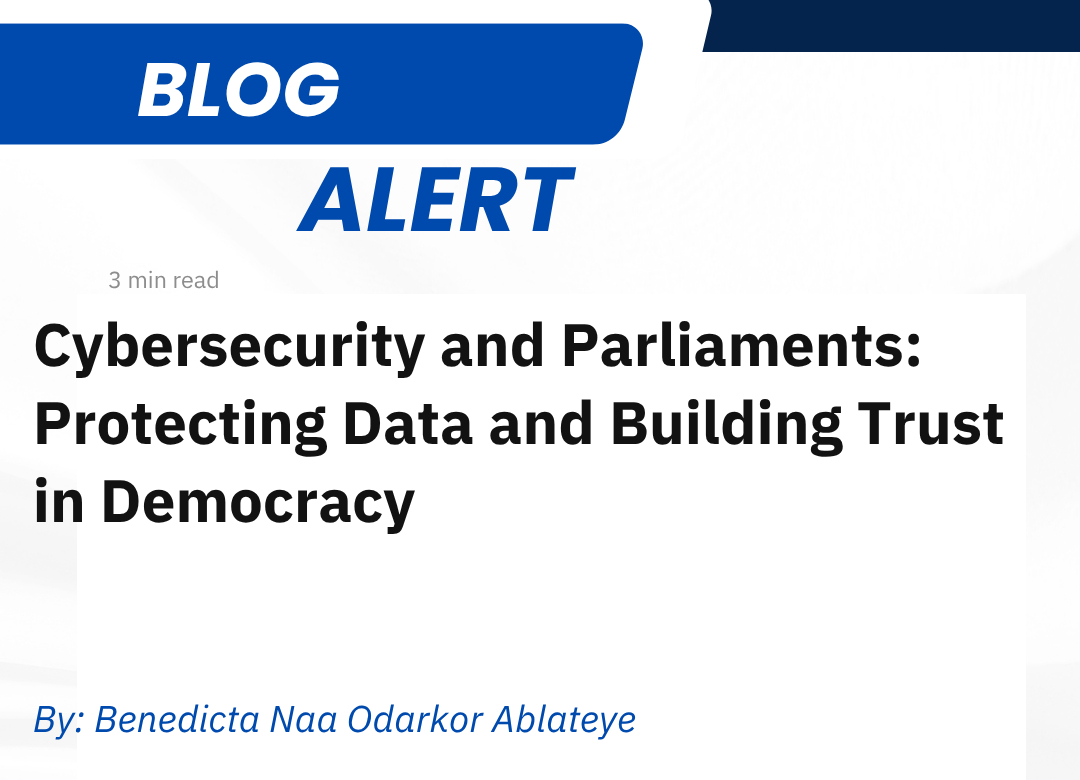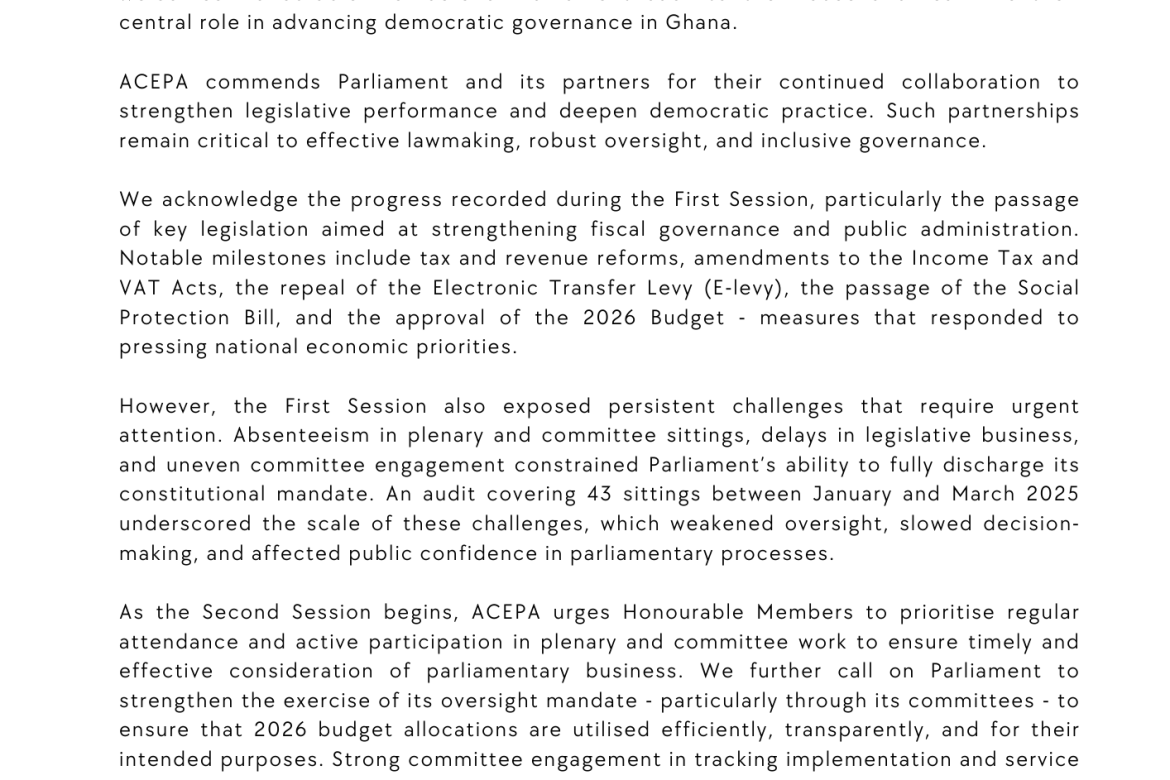By Benedicta Naa Odarkor Ablateye, Communications Officer, ACEPA
October is Cybersecurity Awareness Month – a timely reminder that as technology becomes central to governance, cyber resilience is no longer optional. It is now fundamental to maintaining institutional integrity and public confidence.
The Growing Threat to Governance
Technology is reshaping how parliaments function, improving efficiency, access, and citizen engagement. Yet, it also introduces new risks. According to the World e-Parliament Report 2024, 68% of parliaments now have multi-year digital strategies – proof of widespread digital transformation. However, cybersecurity remains one of the most pressing concerns.
Globally, ransomware attacks on government institutions increased by 65% in the first half of 2025 compared to the same period in 2024, according to Comparitech. Such attacks can paralyze legislative operations, expose sensitive information, and undermine public trust in democratic institutions.
Why This Matters for Parliaments in Africa and Ghana
For African parliaments, including Ghana’s, the stakes are particularly high. As these institutions increasingly adopt cloud technologies, mobile tools, and online platforms to engage citizens, they also expand their exposure to cyber threats.
In Ghana, where democratic institutions are still deepening public trust, a single cyber incident could have serious consequences – disrupting parliamentary work, compromising data, and eroding citizens’ confidence in governance.
Imagine a data breach that exposes confidential reports meant only for Members of Parliament. Such scenarios are not hypothetical – they mirror real and rising risks that public institutions face globally.
Building Cyber Resilience in Parliaments
Resilience begins with leadership. Cybersecurity should not be viewed as just an IT issue but as a core element of good governance. When parliamentary leaders – Speakers, clerks, and committee chairs – champion secure digital practices, they send a clear message that protecting the institution is as important as promoting participation.
Capacity development is equally crucial. Members of Parliament and staff must receive regular training to detect and respond to threats such as phishing, social engineering, or poor password management. Beyond basic awareness, capacity building empowers everyone in the institution to take ownership of data protection.
Parliaments must also invest in secure infrastructure – deploying firewalls, enforcing multi-factor authentication, and conducting regular system audits to uncover vulnerabilities. Building resilience requires collaboration, too. Working with national cybersecurity agencies, and joining regional and global networks, allows parliaments to share intelligence, learn from best practices, and strengthen their defenses collectively.
Transparency is key when incidents occur. Communicating openly about challenges and the steps taken to address them reinforces accountability and public trust. A proactive approach to cybersecurity is not about concealing weaknesses – it is about demonstrating responsibility and cultivating a culture of vigilance across the organization.
Building Trust in the Digital Era
At its core, cybersecurity is about trust. Citizens expect their representatives to safeguard not only their rights and freedoms but also the digital systems that sustain democracy.
When parliaments take cyber risks seriously, they affirm their commitment to transparency, protection, and accountability. Digital resilience is democratic resilience. For African parliaments – and especially Ghana’s – investing in cybersecurity is an investment in the future of democracy itself.
References
- https://www.bgipu.org/activity-reports/ipu-releases-world-e-parliament-report-2024-with-cybersecurity-a-top-priority/
- https://industrialcyber.co/threats-attacks/comparitech-reports-65-surge-in-ransomware-attacks-on-government-agencies-in-2025/
- https://onlinedegrees.sandiego.edu/top-cyber-security-threats/
- https://reports.weforum.org/docs/WEF_Global_Cybersecurity_Outlook_2025.pdf
- https://www.bgipu.org/activity-reports/ipu-releases-world-e-parliament-report-2024-with-cybersecurity-a-top-priority/?utm_source=chatgpt.com
- https://www.youtube.com/watch?v=PYkOgdzjB7U&utm_source=chatgpt.com



